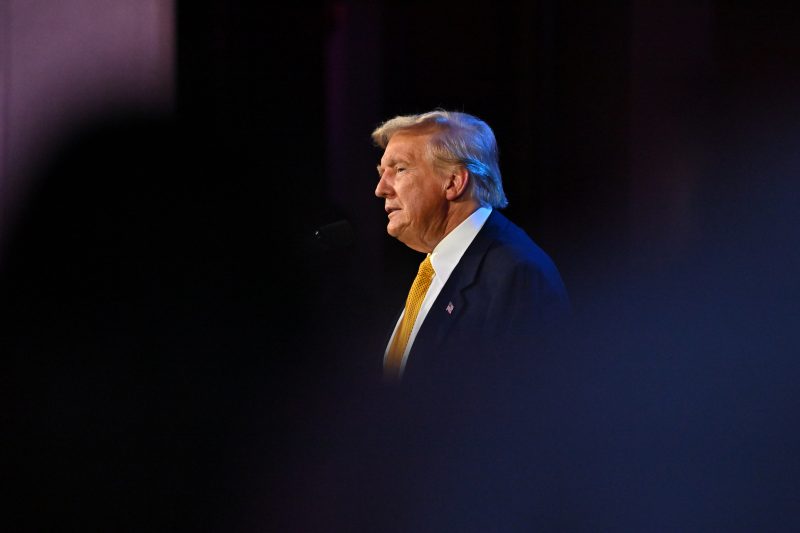
Unveiling the Illusion: The Hidden Foundation of Donald Trump’s Support
In today’s rapidly changing political landscape, it is essential to understand the motivations and beliefs that underpin the support for political figures. One such figure who elicits strong opinions and fervent loyalty is former President Donald Trump. Trump’s presidency was marked by controversy and division, yet a significant portion of the American electorate remains firmly in his corner. While there are a multitude of factors that contribute to Trump’s support base, one key element is the perceived allure of his policy promises.
The idea of a policy mirage is a concept that has gained traction in discussions surrounding Trump and his supporters. This metaphor suggests that the promises and proposals put forth by Trump during his campaign and presidency may not always materialize in the way his supporters anticipate. Despite this, the allure of these policies remains a significant driving force behind his continued support.
One such policy that has garnered significant attention is Trump’s stance on immigration. Throughout his presidency and campaign, Trump consistently pushed for stricter immigration policies, including the construction of a border wall along the US-Mexico border. For many of his supporters, this hardline stance on immigration was a central tenet of his appeal. The promise of a secure border and a crackdown on illegal immigration resonated strongly with those who felt marginalized or threatened by the perceived influx of immigrants.
However, the reality of Trump’s immigration policies often fell short of these lofty promises. The border wall, a symbol of his commitment to secure borders, faced numerous logistical and legal challenges. The administration’s handling of immigration enforcement also drew criticism for its harsh tactics and treatment of migrants. Despite these shortcomings, Trump’s hardline stance on immigration continues to hold sway over many of his supporters, illustrating the enduring power of policy promises in shaping political allegiance.
Another policy area that has played a significant role in Trump’s support base is his approach to trade and economic policy. Trump’s populist rhetoric often focused on protecting American jobs and industries from perceived threats posed by globalization and international trade agreements. Trump’s America First agenda struck a chord with many working-class Americans who felt left behind by economic shifts and globalization.
However, the implementation of Trump’s trade policies, including tariffs and trade wars with China, had mixed outcomes. While some industries benefitted from protectionist measures, others suffered from retaliatory tariffs and disruptions to global supply chains. The complexities of international trade and economics often defied simple solutions, leading to unintended consequences that impacted both supporters and critics of Trump’s policies.
Despite the ambiguities and contradictions that define Trump’s policy legacy, the allure of his promises remains a potent force in shaping political attitudes. The concept of a policy mirage underscores the tension between rhetoric and reality, between promises made and outcomes achieved. For many of Trump’s supporters, the appeal of his policies lies not only in their substance but in the vision of a better, more secure future that they embody.
As the political landscape continues to evolve, it is essential to critically examine the narratives and promises put forth by political figures. The concept of a policy mirage serves as a cautionary reminder of the complexities and uncertainties that underlie political rhetoric. By engaging in informed and nuanced discussions about policy proposals and their potential implications, we can strive towards a more comprehensive understanding of the forces that shape our political reality.
